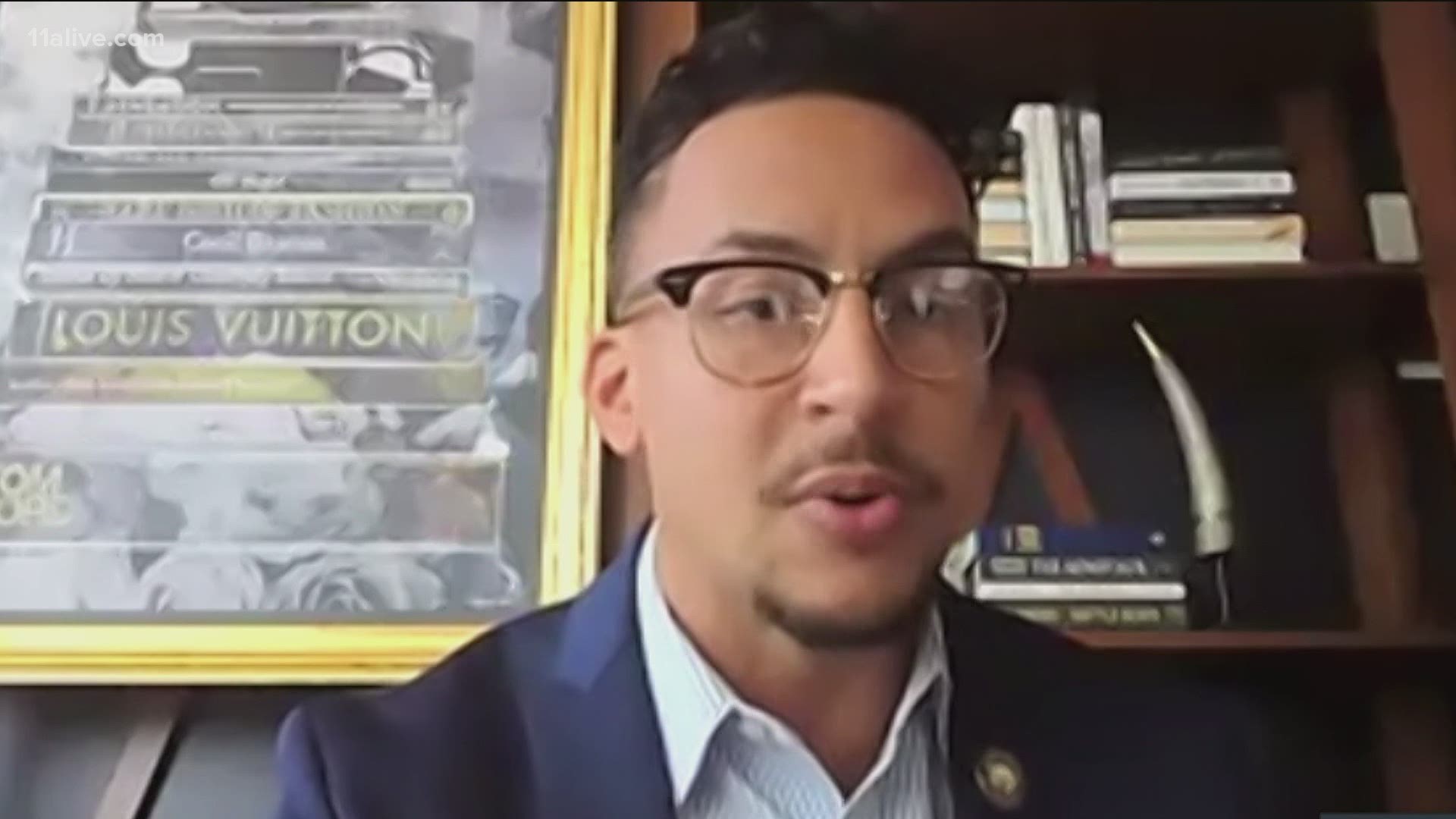ATLANTA — With a legal filing submitted earlier this month, Atlanta councilman and mayoral candidate Antonio Brown is attempting to suppress statements made to federal investigators before they searched his home as part of a fraud indictment last year.
Brown's lawyers are arguing that a meeting with a federal investigator, before the councilman knew he was under investigation, was set up as a ruse and effectively served as an interrogation before Brown had been read Miranda rights.
The U.S. Attorney's Office for the Northern District of Georgia announced the fraud case last July, alleging Brown had spent thousands of dollars using credit cards and personal loans only to claim he had been the victim of identity theft.
His case remains open, and he faces charges including wire fraud, mail fraud, bank fraud, and making false statements on a bank loan application.
In the filing, lawyers say Brown made contact with a federal investigator about making a whistleblower report "regarding other public officials within the Atlanta City Government and State Legislature who Mr. Brown believed were misusing federal funds."
That investigator, the filing says, set up a meeting with Brown at his apartment "under the guise of learning additional information about the whistleblower report."
The investigator then obtained a search warrant for Brown's apartment related to the fraud investigation Brown was not yet aware of.
The filing says the investigator began the meeting by asking Brown about his whistleblower report, and that at this time the councilman was described as "friendly, cordial, [and] pleasant." However when the investigator began pushing questioning of Brown's own financial matters, he "grew nervous,” that “his speech pattern changed,” and he became “a little more fidgety.”
"For the next hour, the meeting turned into an interrogation," the filing argues. "At no point during this interrogation was Mr. Brown read his Miranda rights. (The investigator) neither told Mr. Brown that he was free to leave, nor that the statements he made could be used against him."
Brown's lawyers are now aiming to suppress his statements at that meeting from being introduced as evidence in the fraud trial, which has yet to begin.
The filing contends that there are two key matters at play: "Was Mr. Brown in custody for purposes of Miranda at the time of the interrogation; and (2) was Mr. Brown’s statement rendered involuntary because of the Government’s improper coercion and trickery?"
His lawyers argue: "Because the police controlled Mr. Brown’s home during the interrogation, Mr. Brown was not told that he was free to leave or end the interview, and Mr. Brown was separated from moral support during the interrogation, the answer to question one is a resounding, 'yes.'
"As to question two, the police entered Mr. Brown’s home under a guise and then engaged in a custodial interrogation by telling Mr. Brown the interrogation was necessary to give credibility to the whistleblower report Mr. Brown had made against a government official. This surreptitious trickery renders the answer to question two, 'yes.'"
Earlier this month, Brown announced his run for mayor. It remains unclear when a federal fraud trial might begin.

